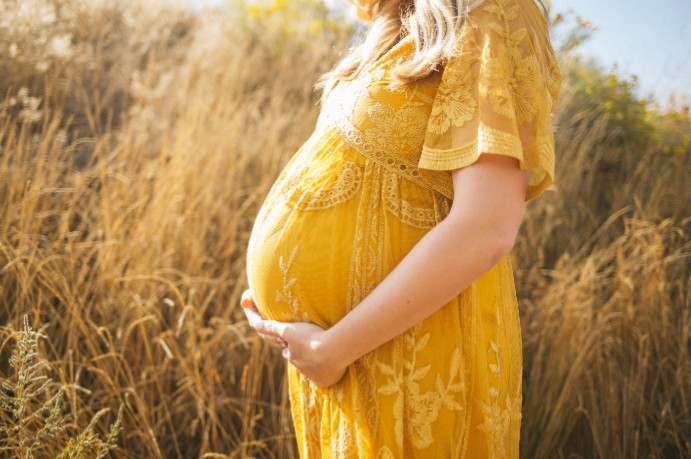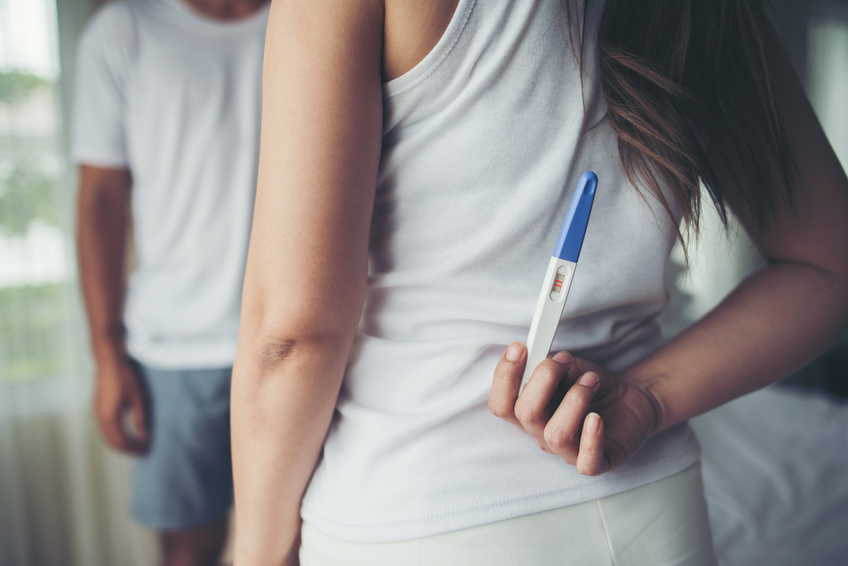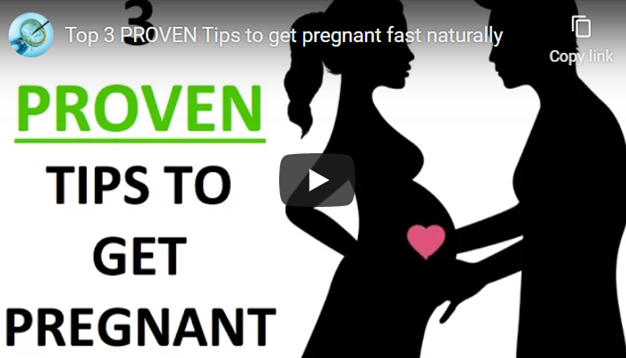SIMPLE FERTILITY TIPS FOR MEN AND WOMEN
There are fertility tips couples can implement to improve their fertility.
Contrary to popular opinion fertility is not just about having a balanced diet. Other important points include sports activities, avoiding toxins in the environment and optimal positions during sex.
Exercise
Regularly participating in a sporting activity can have a positive impact on the fertility of both partners. Light endurance training and more moderate athletic sports get your circulation going and can help to regulate your hormone production. Exercise increases endorphin levels, making you happier and more confident. And of course it helps to lose excess weight, which can sometimes have a negative effect on a person’s fertility.
www.amitamin.com/en/fertilsan-m New life deserves the best possible start!We provide the essential building blocks for this.
How to start training
Couch potatoes can improve their fertility by beginning slowly, for example by going for a fast walk, slow jogging, or swimming twice a week.
Aim to make just small changes to your everyday life. These can include taking the stairs instead of the lift, riding a bike instead of taking the car to go shopping, and going for a short walk during your lunch break.
Over time you will gain momentum and the many small changes will add up to have many positive health effects in your life.
It is very important that the exercise programme is tailored to your individual capabilities. Only take part in a type and level of sport that you enjoy.
Make sure your training does not affect your fertility
In extreme endurance sports heat can become a problem and interfere with the sperm production process in the testicles. It is important to wear comfortable sports clothing which is not too tight, to make sure that the testicles are not pressed against the body too closely.
When cycling, men should avoid using saddles which are hard and narrow.

Keep an eye on your weight
Ensuring you have a normal BMI and favourable body composition through regular exercise will help both partners to improve their fertility. Even if you lose just a little excess weight, your statistical chances of having a child will increase.
Be wary of extreme crash-diets, because they can disturb the hormonal balance and cause an undersupply of important nutrients in the body.
Weight and male fertility
A high BMI is also negatively impacts male fertility. Overweight men are more likely to have a lower sperm count (quantity), as well as poorer sperm quality compared to men with a normal BMI[1]Shayeb AG, Harrild K, Mathers E, Bhattacharya S. An exploration of the association between male body mass index and semen quality. Reproductive Biomedicine Online. 2011. 23(6): 717-723.
This is caused by a hormone imbalance and negatively affected blood circulation, affecting the blood supply to the reproductive organs.
For men being underweight is associated with nutritional deficiencies, which is highly likely to result in infertility due to a lack of important micro nutrients.

Weight and female fertility
Studies have shown that women with a BMI (body mass index) value of over 30 are treated for infertility significantly more frequently than women with a BMI value between 20 and 25[2]Wilkes S, Murdoch A. Obesity and female fertility: a primary care perspective. Journal of Family Planning and Reproductive Health Care. 2009. 35(3): 181-185. One of the reasons for this is that obese women are more commonly affected by polycystic ovarian syndrome (PCOS)[3]Alvarez-Blasco F, Botella-Carretero JI, San Millán JL, Escobar-Morreale HF. Prevalence and characteristics of the polycystic ovary syndrome in overweight and obese women. Archives of Internal … Continue reading.
This condition involves the presence large number of harmless cysts (fluid filled sacs) developing in a woman’s ovaries. These may be unable to release an egg, impairing the woman’s ability to ovulate. Furthermore, the woman’s hormonal balance may be compromised, for example as a result of blood sugar spikes.
Since oestrogen is not only formed in the ovaries but also in adipose (fat tissue) cells[4]Simpson ER. Sources of estrogen and their importance. Journal of Steroid Biochemistry and Molecular Biology. 2003. 86(3-5):225-230. An oversupply of oestrogen from fat cells may therefore cause an overall hormone imbalance, which fertility scientists suspect could contribute to infertility[5]Heine PA, Taylor JA, Iwamoto GA, Lubahn DB, Cooke PS. Increased adipose tissue in male and female estrogen receptor-alpha knockout mice. Proceedings of the National Academy of Sciences of the United … Continue reading.
Excess adipose tissue also negatively affects circulation across the entire body, including the uterus. This can be detrimental when attempting to conceive, because the uterine region requires large amounts of nutrients to initiate pregnancy.
Anorexia
A BMI (Body Mass Index) value below 18 can also cause problems in couples who want to have a child.
This is because a woman’s body does not have enough energy reserves to go through pregnancy[6]Hoffman ER, Zerwas SC, Bulik CM. Reproductive issues in anorexia nervosa. Expert Review of Obstetrics and Gynecology. 2011. 6(4):403-414. As a result, the body may adjust its rate of egg production, which results in absent or delayed menstrual cycles.
Amino acids and antioxidants can improve male fertility by 400%
Combined micronutrients as well as single, high dose regimens of aminoacids have proven very effective in increasing semen quality. The amino acid L-Arginine can directly affect male fertility and quadruple it by improving sperm volume and morphology (% normal shapes), which has been demonstrated in a number of American studies[7]Schachter A, Goldman JA, Zukerman Z. Treatment of oligospermia with the amino acid arginine. Journal of Urology. 1973. 110(3): 311-313 [8]Scibona M, Meschini P, Capparelli S, Pecori C, Rossi P, Menchini Fabris GF. L-arginine and male infertility. Italian Journal of Urology and Nephrology. 1994. 46(4): 251-253. The core components in semen, the polyamines spermine and spermidine, contain a high proportion of Arginine.
L-Arginine also affects male fertility indirectly by improving erectile function and the overall health of the aspiring father. Arginine is sometimes found in male fertility food supplements.
Reduce Stress
Psychological stress can disrupt the hormonal balance in both men and women and has been specifically researched as a cause for idiopathic (unexplained) male infertility[9]Alonso-Uriarte R, Sojo-Aranda I, Cortés-Gallegos V. Role of stress in male fertility. Arch Invest Med (Mex). 1991. 22(2):223-228. Therefore it is recommended that couples who want a child regularly treat themselves by taking time-outs more frequently, to help reduce any stress and pressure they may feel.
Relaxation exercises such as yoga and meditation, ensuring a non-hectic schedule, a romantic meal or a wellness weekend can be very beneficial for both partners and help to reignite a couple’s feelings for each other.
The couple should enjoy this special time for each other. Once the pregnancy is successful, they will have a lot less time for each other for many, many years to come.

Get enough sleep
A long-term sleep deficiency will lead to hormonal imbalances, which will have a negative effect on a number of bodily functions. As stress and cortisol levels increase, the fertility levels of both men[10]Kapoor S. The Close Relationship between Sleep Disorders and Reproductive Dysfunction in Endocrinology. Frontiers in Endocrinology. 2012. 3:117 and women[11]Lin JL, Lin YH, Chueh KH. Somatic symptoms, psychological distress and sleep disturbance among infertile women with intrauterine insemination treatment. Journal of Clinical Nursing. 2014. … Continue reading drop. Couple’s planning to conceive must therefore make sure that they get enough sleep.
Sleep and male fertility
Poor sleep habits may also lead to weight problems, both in men and women. Obesity reduces both sperm quality and quantity in men.
Sleep and female fertility
Some research studies have found a connection between poor sleep habits and irregular (longer cycle) periods, which lead to reduced fertility[12]Quaas A, Dokras A. Diagnosis and Treatment of Unexplained Infertility. Reviews in Obstetrics and Gynecology. 2008. 1(2):69-76 [13]West S, Lashen H, Bloigu A, Franks S, Puukka K, Ruokonen A, Järvelin MR, Tapanainen JS, Morin-Papunen L. Irregular menstruation and hyperandrogenaemia in adolescence are associated with polycystic … Continue reading.
A small study has also found an increase in miscarriage rates among nurses who worked night shifts[14]Labyak S, Lava S, Turek F, Zee P. Effects of shiftwork on sleep and menstrual function in nurses. Health Care for Women International. 2002. 23(6-7):703-714.

Stop contraception early
Theoretically, a woman is able to become pregnant immediately after she stops using contraceptives. Studies have shown that a woman’s cycle is statistically likely to return to normal within the following three months, although sometimes it can take much less time than this.
After coming off the contraceptive pill, it is very difficult to predict when a woman will become fully fertile again. This depends largely on the lifestyle and health profile of the individual.
It is thought that Agnus Castus can help a woman return back to regular menstrual cycles following long-term use of the pill.
Don’t abuse substances
Caffeine
Caffeine and female fertility
Numerous studies have attempted to investigate the effects of caffeine on female fertility[15]Jensen TK, Henriksen TB, Hjollund NH, Scheike T, Kolstad H, Giwercman A, Ernst E, Bonde JP, Skakkebaek NE, Olsen J. Caffeine intake and fecundability: a follow-up study among 430 Danish couples … Continue reading, but the results are inconclusive.
After evaluating all of the evidence, the US based organisation ‘Teratology Information Services’ recommends that all women who want to have a child consume no more than approximately 200 mg of caffeine a day. This is around two cups of coffee. Caffeine in other products such as Coca Cola, chocolate and black tea is included, which can result in the recommended daily limit being reached quickly.
The mechanisms through which coffee consumption can have a negative effect on female fertility are still unknown. Experts suspect that caffeine disrupts the balance of hormones.
Caffeine and male fertility
In contrast to this, sperm quality appears to be unaffected by caffeine and in some cases a negative effect is only observed with very high doses of caffeine[16]Jensen TK, Swan SH, Skakkebaek NE, Rasmussen S, Jørgensen N. Caffeine intake and semen quality in a population of 2,554 young Danish men. American Journal of Epidemiology. 2010. 171(8):883-891. A Brazilian study even found that drinking coffee actually increased the motility of sperm cells in some men[17]Sobreiro BP, Lucon AM, Pasqualotto FF, Hallak J, Athayde KS, Arap S. Semen analysis in fertile patients undergoing vasectomy: reference values and variations according to age, length of sexual … Continue reading.

Alcohol
Whilst the liver is breaking down alcohol, it is unable to carry out other functions such as converting oestrogen into its waste products at the same time. This leads to an excess of the female sex hormone, which can have negative effects on fertility both in men and women[18]Gude D. Alcohol and fertility. Journal of Human Reproductive Sciences. 2012. 5(2):226-228.
Long-term alcohol abuse in men can result in irreversible negative effects on sperm quality[19]Vignera SL, Condorelli RA, Balercia G, Vicari E, Calogero AE. Does alcohol have any effect on male reproductive function? A review of literature. Asian Journal of Andrology. 2013. 15(2):221-225.
It is still not clear whether occasionally drinking alcohol also damages fertility. Therefore experts recommend that when hoping for a child, you should only drink alcohol a maximum of three times a week. If you want to be on the safe side and maximise your chances, refrain from drinking alcohol altogether.
Nicotine
Smoking has a negative impact on the fertility of both men and women. Numerous studies have found that the sperm cells of smokers are less effective at fertilising egg cells, die more quickly and are less mobile[20]Zhou NY, Cao J, Cui ZH, Han X, Cai M, Bao HQ, Li YF, He JL. Effects of smoking on sperm apoptosis and semen quality of adult males in the main urban area of Chongqing. Zhonghua Nan Ke Xue. 2009. … Continue reading.
Both sperm count and normal shapes (morphology) are affected the more a man smokes.
In women, smoking has multiple negative effects on fertility as a result of impaired blood circulation. It negatively affects both the production of hormones and the implantation in the uterus[21]Soares SR, Simon C, Remohí J, Pellicer A. Cigarette smoking affects uterine receptiveness. Human Reproduction. 2007. 22(2):543-547.
Even passive smoking can reduce fertility. Pregnant women who smoke have a higher risk of miscarriage. In addition to this, babies born to mothers who smoked during pregnancy have a worse general state of health than the babies of non- smokers. Therefore it is highly recommended that women stop smoking if they are trying to have a child.

Drugs
Illegal drugs can have numerous harmful effects, one of which is reduced fertility.
Consuming illegal substances should therefore be out of the question for both partners when trying to have a baby, during pregnancy and after the birth of the child.
A study found that cannabis reduces the number and motility of sperm cells in the ejaculate[22]Sharma R, Biedenharn KR, Fedor JM, Agarwal A. Lifestyle factors and reproductive health: taking control of your fertility. Reproductive Biology and Endocrinology. 2013. 11:66. Also the number of sperm cells with malformations was found to be higher than average.
This damage was shown to be long-term as even after several months of abstinence, normal levels were still not achieved[23]Hembree WC, Nahas GG, Zeidenberg P, Huang HF. Changes in human spermatozoa associated with high dose marihuana smoking. Advances in the Biosciences. 1978. 22-23:429-39.
Cocaine and other substances have similar effects on fertility. In the worst case scenario, drugs can damage the genetic material in sperm and egg cells. Therefore if a parent takes drugs, this can have a hugely damaging impact on the long-term development of a child.
Experiments on mice have shown that when a female takes marijuana shortly after fertilisation occurs, this can result in far-reaching developmental disorders in her male offspring[24]Dalterio SL, deRooij DG. Maternal cannabinoid exposure. Effects on spermatogenesis in male offspring. International Journal of Andrology. 1986. 9(4):250-258. The action of the psychoactive component of marijuana also results in numerous egg cells dying whilst travelling towards the uterus, or becoming incorrectly implanted in the fallopian tubes.
When a pregnancy occurs outside of the uterus this is known as an ectopic or tubal pregnancy, and it can have life-threatening consequences for the mother[25]Schuel H. Tuning the oviduct to the anandamide tone. Journal of Clinical Investigation. 2006. 116(8):2087-2090.
Medications
Medication, which interferes with the delicate balance of hormones in the human body can reduce fertility. The list is long and includes many psychotropic drugs, cortisone, blood pressure medication and anabolic steroids. Cancer drugs can cause lasting infertility.
Make sure you have a discussion with your doctor about whether any medications you may be taking regularly can interfere with your fertility. If this is the case, with the guidance of your doctor you will need to look into the possible alternatives.

Reduce all pollutants
Studies have repeatedly shown that a variety of pollutants have a negative effect on the fertility of men and women. Heavy metals in food, dust and water are just as dangerous as pesticides and plasticizers.
For example, male agricultural workers who come directly into contact with pesticides have been shown to have abnormalities in their sperm quality significantly more frequently than other men[26]Hossain F, Ali O, D’Souza UJA, Naing DKS. Effects of pesticide use on semen quality among farmers in rural areas of Sabah, Malaysia. Journal of Occupational Health. 2010. 52(6):353-360.
Many substances which are synthetically produced bear a chemical resemblance to oestrogen. In the worst case scenario this can cause the male hormonal balance to be disrupted, which can negatively affect both the quality and the quantity of sperm produced.
They can also result in reduced fertility levels in women. Even just the air around us is loaded with numerous harmful substances from furniture, wall paints, decorative items and packaging. So it is impossible to protect yourself from them completely.
By following a few rules, you can minimise the number of pollutants that you come into contact with through the air, skin and food.
More frequent and passionate sex
For a long time experts disagreed over whether you should remain for several days abstinent before a woman is in her fertile phase. However, it was found that having sex more frequently actually resulted in better quality sperm[29]Levitas E, Lunenfeld E, Weiss N, Friger M, Har-Vardi I, Koifman A, Potashnik G. Relationship between the duration of sexual abstinence and semen quality: analysis of 9,489 semen samples. Fertility … Continue reading.
When a woman is in the mood for sex, the vaginal secretions help the sperm to reach their destination. Keep in mind that unless specified otherwise lubricants and creams usually includes substances that can harm the sperm cells.
Assume the optimum sex position
The missionary position is the optimal position to conceive a child. The penis can penetrate quite far into the vagina and the sperm cells are less likely to leak out.
It is recommended that the woman stays lying on her back for a few minutes after having had sex and raise her pelvis a little higher than the rest of her body using a pillow. This is because the cervix and uterus are found at an angle below the vagina, so gravity can help facilitate the transport of sperm cells.
Also when a partner penetrates the woman’s vagina from behind, while they lie on their stomach with their knees slightly bent, many more sperm cells are able to reach the uterus. This happens because in this position, the penis can penetrate far into the vagina so that the path of the sperm cells to the uterus is shortened.
All positions which involve sitting or standing are unsuitable when trying to conceive a child. This is because a large amount of sperm will leak out of the vagina due to the force of gravity. This results in relatively few sperm cells reaching the uterus, which statistically reduces the likelihood of a woman becoming pregnant.

Dr. Kooner is Deputy Director of The Advanced Fertility Center of Chicago and has been a Specialist in Fertility Treatment since 1999.
As well as the areas that the clinic specialises in general, he is particularly interested in managing oocyte donation, female same-sex couples, single women having sperm donation and those considering egg freezing.
Dr. Kooner regularly speaks at fertility meetings. He has published in national journals and constantly contributes to the fertility research and publications from Advanced Fertility Center of Chicago.
References
| ↑1 | Shayeb AG, Harrild K, Mathers E, Bhattacharya S. An exploration of the association between male body mass index and semen quality. Reproductive Biomedicine Online. 2011. 23(6): 717-723 |
|---|---|
| ↑2 | Wilkes S, Murdoch A. Obesity and female fertility: a primary care perspective. Journal of Family Planning and Reproductive Health Care. 2009. 35(3): 181-185 |
| ↑3 | Alvarez-Blasco F, Botella-Carretero JI, San Millán JL, Escobar-Morreale HF. Prevalence and characteristics of the polycystic ovary syndrome in overweight and obese women. Archives of Internal Medicine. 2006. 166(19):2081-2086 |
| ↑4 | Simpson ER. Sources of estrogen and their importance. Journal of Steroid Biochemistry and Molecular Biology. 2003. 86(3-5):225-230 |
| ↑5 | Heine PA, Taylor JA, Iwamoto GA, Lubahn DB, Cooke PS. Increased adipose tissue in male and female estrogen receptor-alpha knockout mice. Proceedings of the National Academy of Sciences of the United States of America. 2000. 97(23): 12729-12734 |
| ↑6 | Hoffman ER, Zerwas SC, Bulik CM. Reproductive issues in anorexia nervosa. Expert Review of Obstetrics and Gynecology. 2011. 6(4):403-414 |
| ↑7 | Schachter A, Goldman JA, Zukerman Z. Treatment of oligospermia with the amino acid arginine. Journal of Urology. 1973. 110(3): 311-313 |
| ↑8 | Scibona M, Meschini P, Capparelli S, Pecori C, Rossi P, Menchini Fabris GF. L-arginine and male infertility. Italian Journal of Urology and Nephrology. 1994. 46(4): 251-253 |
| ↑9 | Alonso-Uriarte R, Sojo-Aranda I, Cortés-Gallegos V. Role of stress in male fertility. Arch Invest Med (Mex). 1991. 22(2):223-228 |
| ↑10 | Kapoor S. The Close Relationship between Sleep Disorders and Reproductive Dysfunction in Endocrinology. Frontiers in Endocrinology. 2012. 3:117 |
| ↑11 | Lin JL, Lin YH, Chueh KH. Somatic symptoms, psychological distress and sleep disturbance among infertile women with intrauterine insemination treatment. Journal of Clinical Nursing. 2014. 23(11-12):1677-1684 |
| ↑12 | Quaas A, Dokras A. Diagnosis and Treatment of Unexplained Infertility. Reviews in Obstetrics and Gynecology. 2008. 1(2):69-76 |
| ↑13 | West S, Lashen H, Bloigu A, Franks S, Puukka K, Ruokonen A, Järvelin MR, Tapanainen JS, Morin-Papunen L. Irregular menstruation and hyperandrogenaemia in adolescence are associated with polycystic ovary syndrome and infertility in later life: Northern Finland Birth Cohort 1986 study. Human Reproduction. 2014. 29(10):2339-2351 |
| ↑14 | Labyak S, Lava S, Turek F, Zee P. Effects of shiftwork on sleep and menstrual function in nurses. Health Care for Women International. 2002. 23(6-7):703-714 |
| ↑15 | Jensen TK, Henriksen TB, Hjollund NH, Scheike T, Kolstad H, Giwercman A, Ernst E, Bonde JP, Skakkebaek NE, Olsen J. Caffeine intake and fecundability: a follow-up study among 430 Danish couples planning their first pregnancy. Reproductive Toxicology. 1998. 12(3):289-295 |
| ↑16 | Jensen TK, Swan SH, Skakkebaek NE, Rasmussen S, Jørgensen N. Caffeine intake and semen quality in a population of 2,554 young Danish men. American Journal of Epidemiology. 2010. 171(8):883-891 |
| ↑17 | Sobreiro BP, Lucon AM, Pasqualotto FF, Hallak J, Athayde KS, Arap S. Semen analysis in fertile patients undergoing vasectomy: reference values and variations according to age, length of sexual abstinence, seasonality, smoking habits and caffeine intake. Sao Paulo Medical Journal. 2005. 123(4):161-166 |
| ↑18 | Gude D. Alcohol and fertility. Journal of Human Reproductive Sciences. 2012. 5(2):226-228 |
| ↑19 | Vignera SL, Condorelli RA, Balercia G, Vicari E, Calogero AE. Does alcohol have any effect on male reproductive function? A review of literature. Asian Journal of Andrology. 2013. 15(2):221-225 |
| ↑20 | Zhou NY, Cao J, Cui ZH, Han X, Cai M, Bao HQ, Li YF, He JL. Effects of smoking on sperm apoptosis and semen quality of adult males in the main urban area of Chongqing. Zhonghua Nan Ke Xue. 2009. 15(8):685-688 |
| ↑21 | Soares SR, Simon C, Remohí J, Pellicer A. Cigarette smoking affects uterine receptiveness. Human Reproduction. 2007. 22(2):543-547 |
| ↑22 | Sharma R, Biedenharn KR, Fedor JM, Agarwal A. Lifestyle factors and reproductive health: taking control of your fertility. Reproductive Biology and Endocrinology. 2013. 11:66 |
| ↑23 | Hembree WC, Nahas GG, Zeidenberg P, Huang HF. Changes in human spermatozoa associated with high dose marihuana smoking. Advances in the Biosciences. 1978. 22-23:429-39 |
| ↑24 | Dalterio SL, deRooij DG. Maternal cannabinoid exposure. Effects on spermatogenesis in male offspring. International Journal of Andrology. 1986. 9(4):250-258 |
| ↑25 | Schuel H. Tuning the oviduct to the anandamide tone. Journal of Clinical Investigation. 2006. 116(8):2087-2090 |
| ↑26 | Hossain F, Ali O, D’Souza UJA, Naing DKS. Effects of pesticide use on semen quality among farmers in rural areas of Sabah, Malaysia. Journal of Occupational Health. 2010. 52(6):353-360 |
| ↑27 | Agarwal A, Desai NR, Makker K, Varghese A, Mouradi R, Sabanegh E, Sharma R. Effects of radiofrequency electromagnetic waves (RF-EMW) from cellular phones on human ejaculated semen: an in vitro pilot study. Fertility and Sterility. 2009. 92(4):1318-1325 |
| ↑28 | Gutschi T, Al-Ali BM, Shamloul R, Pummer K, Trummer H. Impact of cell phone use on men’s semen parameters. Andrologia. 2011. 43(5):312-316 |
| ↑29 | Levitas E, Lunenfeld E, Weiss N, Friger M, Har-Vardi I, Koifman A, Potashnik G. Relationship between the duration of sexual abstinence and semen quality: analysis of 9,489 semen samples. Fertility and Sterility. 2005. 83(6):1680-1686 |







Hello, my name is Esther. I’m 33 years old. have two girls, i had my first babe on November 2006, my 2nd babe on 2010 but since thn I’ve being trying to conceive but I can’t, please help me.
Dear Esther, (1) Have you discussed the with your gynaecologist and (2) has your partner ensured that he is fertile via a semen analysis? I can see that you are posting from Northern Ireland. Please contact one of the three fertility clinics in Northern Ireland, which we have in our directory. Best of luck!
Hi, I was trying to get pregnant for 8 years, I had endometriosis, and I do laparoscopic already.
Hi I am trying to get pregnant but no way and my period now last for two weeks….please i need help and advice because i dont want to loose my husband.
Dear Cynthia, please follow all the tips on this page and in the youtube channel videos, especially the intercourse-timing strategy. Best of luck!
Hi Dr am Gloria I had my first child years now am trying to conceive again but is not coming please i need help
Dear Gloria, please follow the advice in the youtube videos. https://www.youtube.com/channel/UCRYlpKRAYwALcguRXzYM_qQ
HI, I’m Asra from Pakistan, I got married two years back, and we are unable to conceive yet, after matting with my husband, sperms leak out of vagina. I keep my pelvis high then rest of my body, but still sperm leaking happens. I want to know it’s solution
Dear Asra, it is common that semen runs out of the vagina after intercourse. If you are actively trying to conceive (TTC) time intercourse carefully around the ovulation date try to get your partner to eyaculate deeper inside the vaginal canal. After intercourse it is thought that the chance of fertilisation may be improved if the female remains lying on her back with her pelvis lifted e.g. on a pillow for approximately 20 minutes. The idea is that gravity will stop semen from running out and help the sperm cells swim inside the uterus. There are, however, no credible clinical studies on this. Best of luck!
Hi my name is dhaman . I’m nt getting my periods properly and I also want to get pregnant I’m trying to get pregnant for two years plz help me . I really need to get pregnant within this month plz help plz help . Thank u
Dear Dhaman, please talk to your gynaecologist (and your partner to his andrologist/male fertility specialist) to make sure you are both fully fertile. Then follow the advice on this page and in our videos, especially on diets, lifestyle and intercourse timing around your ovulation date. Best of luck!
Hello doctor i just want to become a pregnant but i dont no how to track my ovulation time so